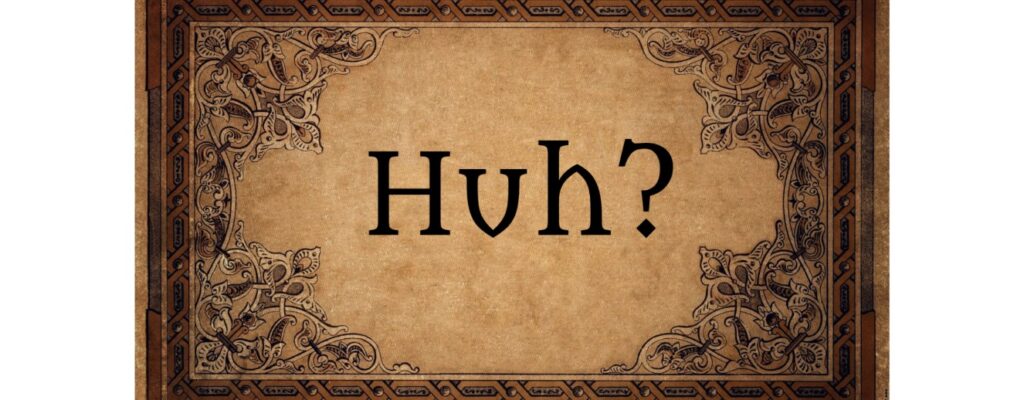Pithy little adages about our inhabiting the planet include “No one gets out of here alive” and “You can’t take it with you.” There are probably more, though the ones mentioned here have become titles for movies.
The first, of course, alludes to the reality that mortality is what awaits a life, what signals its observable end. The second suggests that generosity is more admirable a trait than one displayed by the most parsimonious. That second adage refers to a wealth usually measured in dollars.
But what does go with the deceased is the promise of more of whatever gifts the recently departed offered while alive.
For that reason, I’d like to suggest that there are those who—for any number of reasons—should be granted immortality. And many more for whom I have no room. Their contributions to the arts, culture and science should not have ceased by the mere loss of breath.
Betty White, the comedic actress who died Friday, leaps to mind as my first nominee. Just eighteen days shy of her 100th birthday, she delighted her audiences with a wit and warmth that spoke to generations, making young and old alike smile, if not downright guffaw. Beginning in the late-1930s, she lent her considerable talents to radio, television and film. From all indications, she seemed to be casting for another project, another show, maybe even Robert Redford. Age would not stand in her way. If she had only ever appeared on The Mary Tyler Moore Show and The Golden Girls, her legacy would have been secured, her immortality guaranteed.
Dizzy Gillespie comes next. It was an honor to have known him and a privilege to have listened to his music over multiple decades. He was an innovator, helping, as it were, to create bebop along with Charlie “Bird” Parker, Thelonious Monk and Kenny Clarke, among countless others. Diz could have spent a career living off the laurels of the bebop jazz genre, but he was a restless soul whose musical vocabulary knew no bounds, including his embrace of Latin rhythms. With his bent-bell trumpet and ballooning cheeks, Dizzy was a serious musician with a great sense of obligation to entertain the audiences he faced around the world.
Science-fiction is a literary genre that I have never much appreciated. Although I’ve read the de rigueur pieces by C.S. Lewis, Isaac Asimov and Robert Heinlein, nothing ever grabbed me. Part of it had to do with the lack of character development; the other part with fantastical events and developments I could not embrace. That all changed with Kurt Vonnegut, the author of such masterpieces as Cat’s Cradle (1963) and Welcome to the Monkey House (1968). Slaughterhouse Five (1969), though barely sci-fi, nonetheless captured my attention with his arguments against war, that so poignantly related to the Vietnam war. I would have loved to have read his take on the Trump era.
Martin Luther King, Jr., and Robert Francis Kennedy held the future of this country in their hands before assassins felled them and deprived us of that future in 1968. Both believed in justice, and both fought uphill battles to convince others that it was our duty and obligation to see to the well-being of others, and to understand that racism was a systemic plague in the United States. How different, I often wonder, would our world be had they survived the bullets of hatred.
Marie Curie was a Polish and naturalized-French physicist and chemist who conducted pioneering research on radioactivity. She was the first woman to win a Nobel Prize, the first person and the only woman to win the Nobel Prize twice, and the only person to win the prize in two scientific fields. Her second Nobel Prize was in chemistry for her discovery of the elements polonium and radium, using techniques she invented for isolating radioactive isotopes. It’s difficult to image where her intellect and curiosity would have led her, but we might suggest that she alone could have discovered the secrets to Keith Richards’s longevity.
Leonard Bernstein excelled in everything he touched. The first American-born conductor to lead a major American symphony orchestra (the New York Philharmonic), he was a conductor, pianist, music educator, author, and humanitarian. He was a composer in many styles, including symphonic and orchestral music, ballet, film and theatre music, choral works, opera, chamber music and works for the piano. His best-known work is the Broadway musical West Side Story, which continues to be regularly performed worldwide, and has been made into two (1961 and 2021) feature films. His works include three symphonies, Chichester Psalms, Serenade after Plato’s “Symposium”, the original score for the film On the Waterfront, and theater works including On the Town, Wonderful Town, Candide, and his MASS. We would all have done well to embrace his art and humanity.
Myron Cohen (1902-1986) was a stand-up comedian whose lengthy tales (“shaggy-dog” stories as they would become known) captivated the audiences of the 1950s-60s. He told lavish stories about improbable circumstances that might end with “I’ll have it for you by Tuesday” or “I make a good living.” He humanized our Jewish culture that helped explain it to non-Jews and proved that we should laugh first at ourselves. We could all use more of his stories.
Franklin Delano Roosevelt propelled us into a world war that saved our democracy, our economy, and freedom for much of the world. It was the “last good war” the social and literary critic Philip Rahv noted. I was raised an FDR democrat, with both sets of grandparents celebrating his humanity by hanging his portrait on their living room walls. He introduced countless programs to address infrastructure and job creation. There were few handouts, with benefits being offered in exchange for work. Hell, even poets were rewarded for their expressions of truth.
It’s difficult to always remain upbeat and optimistic. My list so far, is both, hoping that their greatness be repeated and enhanced. But now we must turn to a darker moment in our history, and I nominate Adolph Hitler as one whose immortality should be served in a cinder-block cell, stark, dank and dark. Death was far too easy an end to his evil. I wish that for all eternity he be visited by the stories of each of the six-million Jews he ordered murdered.
One by one by one.
Photography by Courtney A. Liska
Marrow Bones
This dish holds little appeal for many. I happen to find them delicious.
8 to 12 center-cut beef or veal marrow bones, 3 inches long, 3 to 4 pounds total
1 cup roughly chopped fresh parsley
2 shallots, thinly sliced
2 teaspoons capers
1 1/2 tablespoons extra virgin olive oil
2 teaspoons fresh lemon juice
Coarse sea salt to taste
Thick slices of crusty bread, toasted
Heat oven to 450 degrees. Put bones, cut side up, on foil-lined baking sheet or in ovenproof skillet. Cook until marrow is soft and has begun to separate from the bone, about 15 minutes. (Stop before marrow begins to drizzle out.)
Meanwhile, combine parsley, shallots and capers in small bowl. Just before bones are ready, whisk together olive oil and lemon juice and drizzle dressing over parsley mixture until leaves are just coated. Put roasted bones, parsley salad, salt and toast on a large plate. To serve, scoop out marrow, spread on toast, sprinkle with salt and top with parsley salad.







 As for the name of our national deity, I’ll suggest Terry because it is not gender specific and can be spelled in different ways. Terry lives in the clouds and is invisible, which begs the question that if we’re created in Terry’s image how is it we can see each other. We will be asked to fear Terry, which is made difficult by Terry’s gleeful singing of “If They Could See Me Now,” and to conduct ourselves by adhering to a performance-based system of earning Terry’s love and approval, which is highly unlikely because we accept the fact that people are inherently bad. We will also be taught to honor conformity and disparage individuality. We can, however, eat shellfish and bacon.
As for the name of our national deity, I’ll suggest Terry because it is not gender specific and can be spelled in different ways. Terry lives in the clouds and is invisible, which begs the question that if we’re created in Terry’s image how is it we can see each other. We will be asked to fear Terry, which is made difficult by Terry’s gleeful singing of “If They Could See Me Now,” and to conduct ourselves by adhering to a performance-based system of earning Terry’s love and approval, which is highly unlikely because we accept the fact that people are inherently bad. We will also be taught to honor conformity and disparage individuality. We can, however, eat shellfish and bacon.

